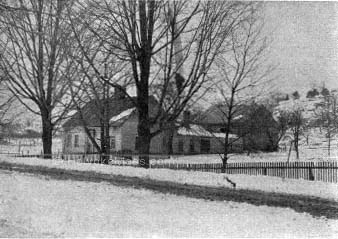
An Old Homestead on Northampton Street.
|
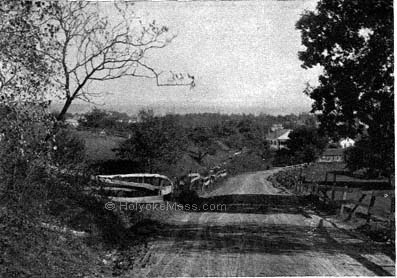
Looking Down Crafts’ Hill.
|
Now I like to see boys playing, and I would deny myself a great many things rather than have my boys forced to work as constantly as I did, and with so little respite for fun as I had when I was a boy; but, after all, it seems to me that it is a grave question whether a boy who spends three-quarters, or even half of the working time of every yer i amusing himself is not carrying it a little too far; whether, indeed, such a life as this is the kind of life that a boy ought to be leading from his tenth to his eighteenth year; whether this is the best way to fit himself for the serious work of life. And beause this seemed to me so grave a question, I thought I wouls see what light could be thrown upon it by experience. "If this is the best kind of life to fit a boy for success," I said to myself, "then, doubtless, we shall find that the men who now stand at the head of affairs lived this kind of life when they were boys." Inquiry among one hundred men who could fairly well be said to stand at the head of the financial, commerical, professional and educational interests of my home city, revealed the fact that four-fifths of all these men had the training of farm life. It is the testimony of two-thirds of the reamining fifth that they were poor boys — not paupers by any means, but children of the humbler classes, many of them in narrow and needy circumstances — and though they lived in cities or villages, they were accustomed from their earliest years to hard work.
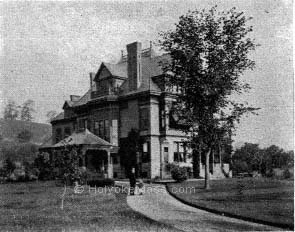
Residence of George W. Prentiss.
|
And what is farm life for a boy? I can tell you very shortly about what it means. It means work — steady work, hard work — all the year round, with few holidays and few leisure hours. From about seven to ten years of age, these farmers’ boys, who are now bank presidents, and merchants, and lawyers, and doctors, were accustomed to go to school about three months in the winter and three in the summer; but out of school hours and during vacations, there was always work for them to do: gardens to work, cattle and sheep and pigs and chickens to care for, firewood to saw and split and carry into the house, hay to stir and rake, corn to husk and shell—plenty of work, and they were set at it and kept at it, most of them, from the time that they were seven or eight years old. After they were about ten, they stopped going to school summers; they were wanted at home to work; so that from about ten to fifteen they had three or four months of schooling every winter, during which time they did many chores mornings and evenings, while all the other nine months of the year were devoted to work, with little respite.
Now, why is it that these farmers’ boys and these poor men’s sons have gone right up to the front, and taken places that by inheritance belonged to those of the town? Is it because farmers’ boys have more brains than city boys? Is it because poor men’s sons are smarter than rich men’s sons? No; we are not going to admit anything of the kind.
Is it because the farmers’ boys and the poor men’s sons are morally superior to the sons of the well-to-do people in the cities? No; I do not think that is true either.
The city boys of whom I am talking are not, in their earlier years exceptionally immoral. There are bad specimens among them, of course; but there are quite as many, in proportion, in those classes out of which these successful men have come. There is a great deal of vice and animalism and iniquity among some country boys. And many of these fellow who grow up in the homes of the well-to-do people of the cities, are as manly and ingenious and right-hearted as any boys in the world. Why is it, then, that the great majority of them fall behind in the race of life?
The reason is a very simple one. They are not trained to work when they are young, and therefore they are beaten at every point by the boys who are trained to work. Pretty nearly all the prizes of life are carried off by the men who have learned to work. The boys who are compelled by circumstances to learn this lesson are perfectly sure, in this country, to outstrip those who have not learned it.
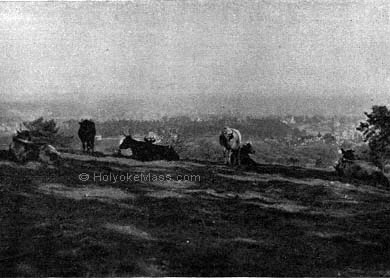
A Crafts’ Hill Pasture.
|
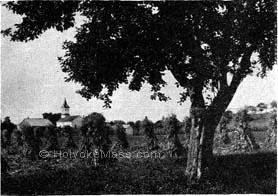
The Old Church—Northampton Street.
|
© Laurel O’Donnell 1996 - 2006, all rights reserved
This document may be downloaded for personal non-commercial use only
and may not be reproduced or distributed without permission in any format.
This is an edited adaptation from the original publication.
|